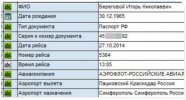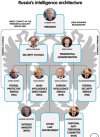Muutama pointti:Hyviä pointteja. Jos pieni syrjähyppy sallitaan, niin ryssän surkeat näytöt Ukrainassa panevat kyllä miettimään olisiko punakoneesta ollut mihinkään NATO:a vastaan sanotaan nyt vaikka 1980-luvun Keski-Euroopassa ? Toki massaa sillä olisi ollut heittää tuleen niin maan helvetisti, mutta oikeasti millä tasolla osaaminen olisi ollut ? Ja nyt on käynyt selväksi, että varsinkin Venäjän maavoimat ovat pelkkä varjo neuvostoarmeijasta. Vaikuttaa olevan ihan silkkaa paskaa taidoiltaan ja osaamiseltaan jos verrataan länsiarmeijoihin. Ja Putlerilla ei enää ole edes sitä massaa millä punakone olisi myllyttänyt ja jauhanut.
1. Vuonna 1980 NL:n BKT oli noin puolet USAn luvusta. Nyt se on alle 1/10.
2. NL oli pannut usean vuosikymmenen ihan käsittämättömän määrän rahaa aseisiin tuossa vaiheessa, noin 15% BKT:stä. Nämä kaksi huomioiden USAn ja NL:n sotilasmenot olivat melkein yhtä suuret. Nyt prosenttiosuus on melkein sama molemmissa ja talouksien kokoero on se, mikä on, joten USA on täysin ylivoimainen.
3. Kaikki Itä-Euroopan maat olisivat olleet NL:n puolella.
4. Teknologinen ero lännen ja idän välillä on syntynyt ennen kaikkea tietojen käsittelyssä. Tämä puoli sotimista oli paljon pienemmässä roolissa 1980-luvulla kuin on nyt.
5. NL oli valmistautunut ennen kaikkea suursotaan Euroopassa. Siksi Afganistan meni siltä niin käteen, koska se sota ei soveltunut asevelvollisilla). Nyky-Venäjän armeija taas sopii paremmin johonkin Tshethsenian kaltaiseen sotaan kuin ns. "Near peer" vastustajaan tavanomaisessa suursodassa. LKP-systeemit oli silloin ihan kunnossa toisin kuin nyt.
Todennäköisesti NL (+Varsovanliitto) olisi silti saanut turpiin NATOlta, mutta paljon tiukempi matsi se olisi ollut kuin mitä tällä hetkellä voimasuhteista voi päätellä.



